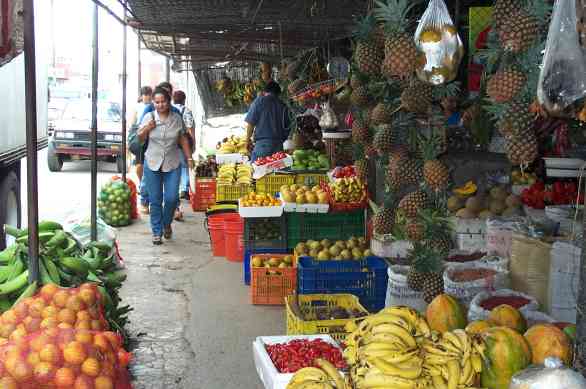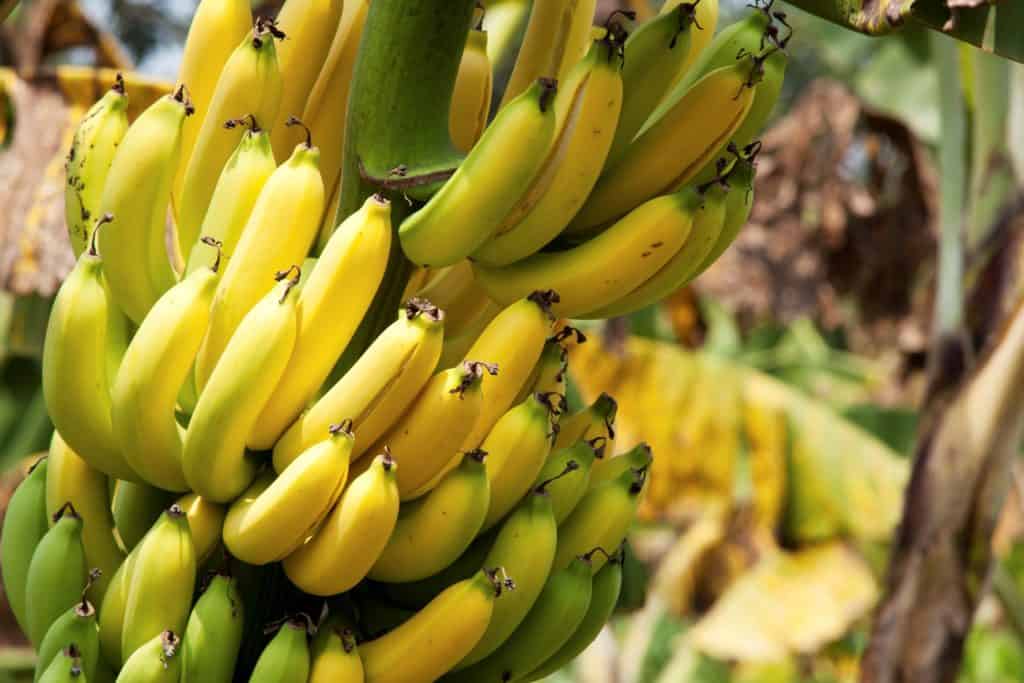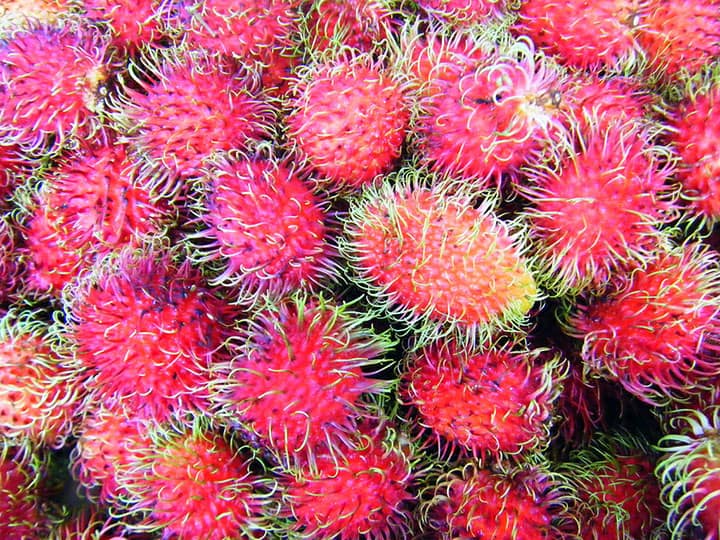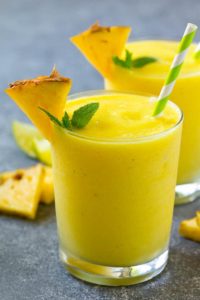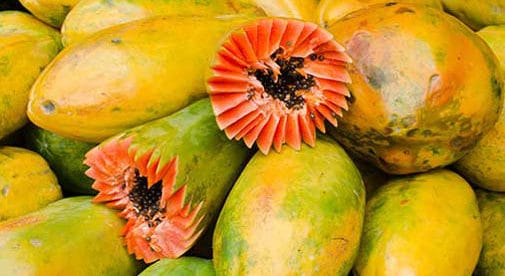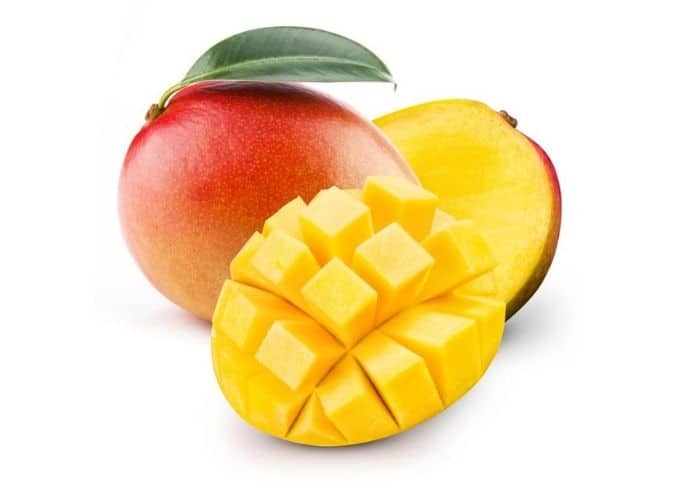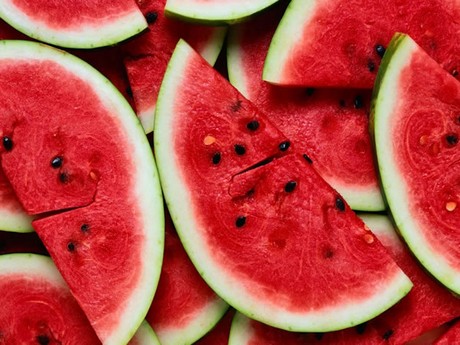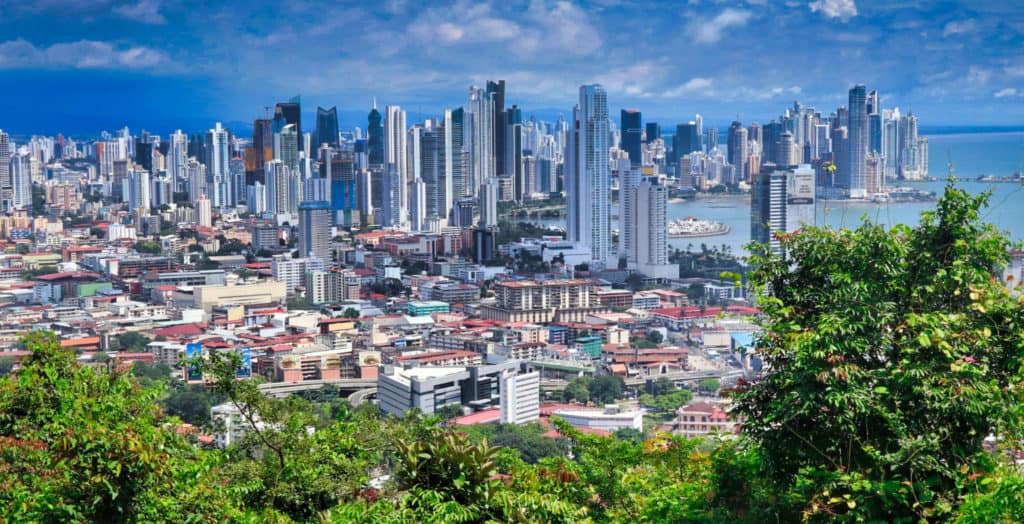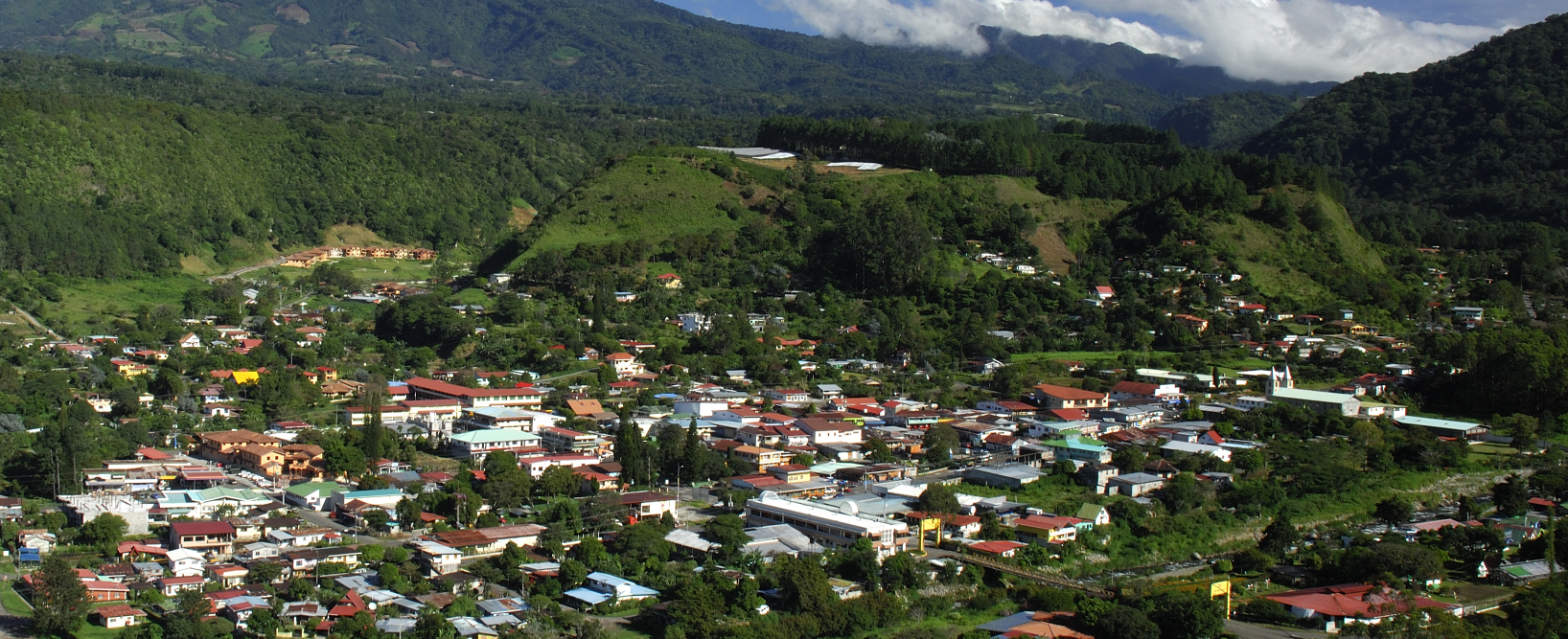Panama – a gorgeous paradise with tropical beaches, warm weather, and spectacular mountain scenery. What more can you ask for?
Destination-wise, Panama is a haven for expats looking to relocate for retirement. Panama is consistently ranked as one of the best places in the world to retire. Panama is a great place to move to, thanks to its low cost of living, great climate, and easy visa residency requirements. Retirees also get a slew of discounts, from 20% off eating out to 25% off airfare to anywhere in the world.
Another reason to move to this beautiful country is its benefits for your health and wellness. So let’s discuss why you’ll get healthy when you move to Panama.
1. Panama is abundant in fruits and vegetables
You can reap the rewards of living in this beautiful country through its abundant local fruits and vegetables. When you move to Panama, you will certainly start eating many more fruits which are good for your health.
Fresh fruits are much more affordable in Panama, so you’ll be more likely to eat them often. These fruits are rich in vitamins and minerals that fight against inflammation and other illnesses. Here are some of the healthiest fruits available in Panama:
Bananas
Bananas are abundant in Panama. In fact, no discussion about Panama is complete without discussing its world-class and export-quality bananas. They are a staple in Panamanian diets, and for good reason.
Aside from antioxidants, bananas contain nutrients that moderate blood sugar levels and promote heart health. They also improve your digestive health which can help you lose and maintain a healthy weight.
Rich in Nutrients: Bananas are a good source of several vitamins and minerals, especially potassium, vitamin C, vitamin B6, and magnesium. These nutrients play vital roles in maintaining overall health.
High in Potassium: The high potassium content in bananas is beneficial for heart health. Potassium helps manage blood pressure levels and reduces the risk of heart disease by countering the detrimental effects of sodium and easing tension in blood vessel walls.
Source of Dietary Fiber: Bananas contain a fair amount of fiber, which aids digestive health. The fiber helps regulate the speed of digestion, which can stabilize blood sugar levels and improve gastrointestinal health.
Energy Boosting: Bananas provide carbohydrates in the form of simple sugars that are easily digestible, making them a quick and effective energy source. This makes bananas particularly popular among athletes and fitness enthusiasts.
Supports Heart Health: Beyond potassium, the fiber in bananas also contributes to heart health. Eating a diet high in fiber can reduce the risk of cardiovascular disease and lower cholesterol levels.
Antioxidant Properties: Bananas are rich in several types of potent antioxidants, including dopamine and catechins. These antioxidants provide protection against free radicals and chronic diseases.
Overall, bananas are a versatile fruit that can be included in a healthy diet in many forms, whether eaten on their own, sliced into cereal, blended in a smoothie, or baked into desserts. I always keep frozen bananas in my freezer to use to make a smoothie or “nice cream.”
Mamon or Rambutan
This fruit is related to the lychee, and it has a red and fuzzy exterior, which you need to peel off when you eat. In Panama, they are called Mamón Chino, and you can find them overflowing in their street stalls at certain times of year
Rambutan fruit is often used in diabetes and hypertension treatments. It also has antiseptic, anti-parasitic, and anti-free radical properties.
It offers several health benefits, making it a valuable addition to a balanced diet. Here are some of the key health benefits of eating rambutan:
Rich in Vitamins and Minerals: Rambutans are a good source of vitamin C, which is important for immune function, skin health, and antioxidant protection. They also contain smaller amounts of vitamins A and B, as well as minerals like iron, calcium, and potassium.
Antioxidant Properties: The fruit is rich in antioxidants such as flavonoids, carotenoids, and vitamin C, which help neutralize harmful free radicals in the body. This can reduce oxidative stress and may lower the risk of chronic diseases such as heart disease, cancer, and diabetes.
Fiber Content: Rambutan contains dietary fiber, which is beneficial for digestive health. Fiber helps to regulate bowel movements and prevent constipation. It can also aid in maintaining a healthy weight and reducing cholesterol levels.
Hydration: Rambutan is composed of about 80% water, making it a hydrating fruit that can help maintain electrolyte balance, especially in hot climates or during physical activity.
Energy Boosting: While low in calories, rambutan provides carbohydrates in the form of natural sugars, which can offer a quick source of energy.
Potential Anti-Inflammatory Effects: Some studies suggest that the compounds found in rambutan may have anti-inflammatory properties, which could help in reducing inflammation in the body.
Pineapple
Pineapple is an incredibly delicious and healthy tropical fruit. This popular fruit contains nutrients, antioxidants, and other helpful compounds, such as enzymes that can fight inflammation and disease.
Pineapple and its compounds have been linked to many health benefits, including aiding digestion, boosting immunity, and speeding up recovery from surgery.
Pineapples are low in calories but have an incredibly impressive nutrient profile.
One cup (5.8 ounces or 165 grams) of pineapple chunks contains the following (2):
Calories: 82.5
Fat: 1.7 grams
Protein: 1 gram
Carbs: 21.6 grams
Fiber: 2.3 grams
Vitamin C: 131% of the RDI
Manganese: 76% of the RDI
Vitamin B6: 9% of the RDI
Copper: 9% of the RDI
Thiamin: 9% of the RDI
Folate: 7% of the RDI
Potassium: 5% of the RDI
Magnesium: 5% of the RDI
Niacin: 4% of the RDI
Pantothenic acid: 4% of the RDI
Riboflavin: 3% of the RDI
Iron: 3% of the RDI
Pineapples also contain trace amounts of vitamins A and K, phosphorus, zinc, and calcium. They are especially rich in vitamin C and manganese, providing 131% and 76% of the daily recommendations. Vitamin C is essential for growth and development, a healthy immune system, and aiding the absorption of iron from the diet. Meanwhile, manganese is a naturally occurring mineral that aids growth, maintains a healthy metabolism, and has antioxidant properties.
I love eating pineapple straight or making a pineapple smoothie with frozen pineapple. Yesterday, I bought four large pineapples for $3 from a street vendor with a truck full of pineapples.
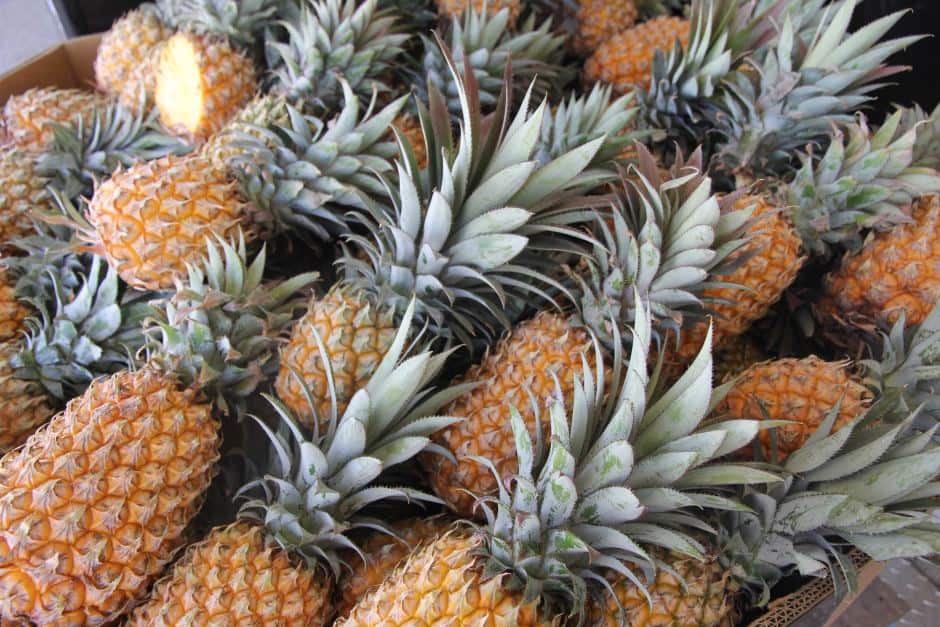
Papaya
Papaya is an anti-inflammatory fruit that can help reduce heart disease, improve digestive health, lower blood sugar levels and healing wounds. The papaya fruit also contains Vitamins A, B, C, and E, as well as iron, calcium, magnesium, potassium, choline and cancer-fighting lycopene
Papayas contain an enzyme called papain that aids digestion; in fact, they can be used as a meat tenderizer. Papaya is also high in fiber and water, both of which help prevent constipation and promote regularity and a healthy digestive tract.
Papaya is a tropical fruit that is not only flavorful but also rich in nutrients and enzymes, offering a range of health benefits. Here are some of the primary health benefits of eating papaya:
Rich in Vitamins and Minerals: Papayas are an excellent source of vitamin C, which is essential for immune function and antioxidant protection. They also provide significant amounts of vitamin A, important for eye health and immune responses, as well as folate, vitamin E, and several B vitamins. Additionally, papayas contain minerals such as potassium, magnesium, and calcium.
Digestive Health: One of the key components of papaya is the enzyme papain, which aids in the digestion of proteins. This can help reduce digestive disorders like bloating and constipation. The fiber in papaya also promotes a healthy digestive tract by supporting regular bowel movements.
Anti-inflammatory Properties: The enzymes papain and chymopapain in papaya have been shown to reduce inflammation. This can be beneficial for people suffering from asthma, osteoarthritis, and rheumatoid arthritis.
Antioxidant Effects: Papayas are rich in antioxidants such as carotenoids that can neutralize free radicals. Studies have suggested that the lycopene in papaya can reduce the risk of cancer.
Heart Health: The fiber, potassium, and vitamins in papaya help support heart health. Potassium helps manage blood pressure levels, and fiber can lower the levels of LDL (bad) cholesterol.
Supports Immune System: The high levels of vitamin C and vitamin A in papaya strengthen the immune system and help protect against various illnesses, including recurrent ear infections, colds, and flu.
Skin Health: Vitamin A and papain enzyme help reduce the visibility of acne and skin blemishes. When used topically, mashed papaya can help treat sores and ulcers. Vitamin C also aids in the production of collagen, which is crucial for skin health.
May Improve Hair Health: Vitamin A in papaya is also beneficial for hair because it produces sebum, a natural oil that keeps the hair conditioned and healthy.
Papaya is a versatile fruit that can be included in your diet in various forms such as fresh fruit, smoothies, salads, and desserts. However, it’s important to consume it in moderation, especially if you have a latex allergy or if you are pregnant, as the latex present in unripe papaya can cause contractions.
I know a man who moved to Panama to die 20 years ago. He had liver cancer but cured it by eating papaya and a few papaya seeds every day. Papaya seeds contain vital nutrients that help heal liver cirrhosis. Regularly eating small amounts of papaya seeds helps detox the liver and keeps liver diseases at bay.
Guanabana or Soursop
Soursop is popular in tropical countries but much more in Panama. Panamanians swear by this fruit because of its miraculous healing benefits, such as tumor shrinking, parasite blasting, and cancer-fighting properties.
Guanabana, or soursop, is a tropical fruit known for its distinct flavor, combining strawberry and pineapple with citrus notes. Beyond its unique taste, guanabana offers several health benefits:
Rich in Nutrients: Guanabana is a good source of vitamin C, which is essential for immune system function, skin health, and antioxidant protection. It also contains vitamins B1, B2, and B3, potassium, magnesium, and fiber.
Antioxidant Properties: The fruit contains antioxidants, including ascorbic acid (vitamin C), lutein, and tannins. These compounds help neutralize harmful free radicals in the body, potentially reducing the risk of chronic diseases such as heart disease and cancer.
Anti-inflammatory Effects: Guanabana has been used in traditional medicine for its anti-inflammatory properties, which can help reduce pain and swelling. This makes it potentially beneficial for conditions such as arthritis.
May Have Anticancer Properties: Some laboratory studies have suggested that extracts from guanabana can target and kill cancer cells. However, these effects have not been proven in human studies, and more research is needed to understand its potential cancer-fighting properties.
Supports Heart Health: The potassium in guanabana can help manage blood pressure levels, which is beneficial for heart health. Additionally, the fiber in the fruit helps control cholesterol levels, contributing to cardiovascular health.
May Help Regulate Blood Sugar Levels: Some animal studies suggest that guanabana can help regulate blood sugar levels, which might be beneficial for people with diabetes. However, more research is needed to confirm these effects in humans.
Digestive Health: The fiber in guanabana can aid digestion and prevent constipation, promoting overall gastrointestinal health.
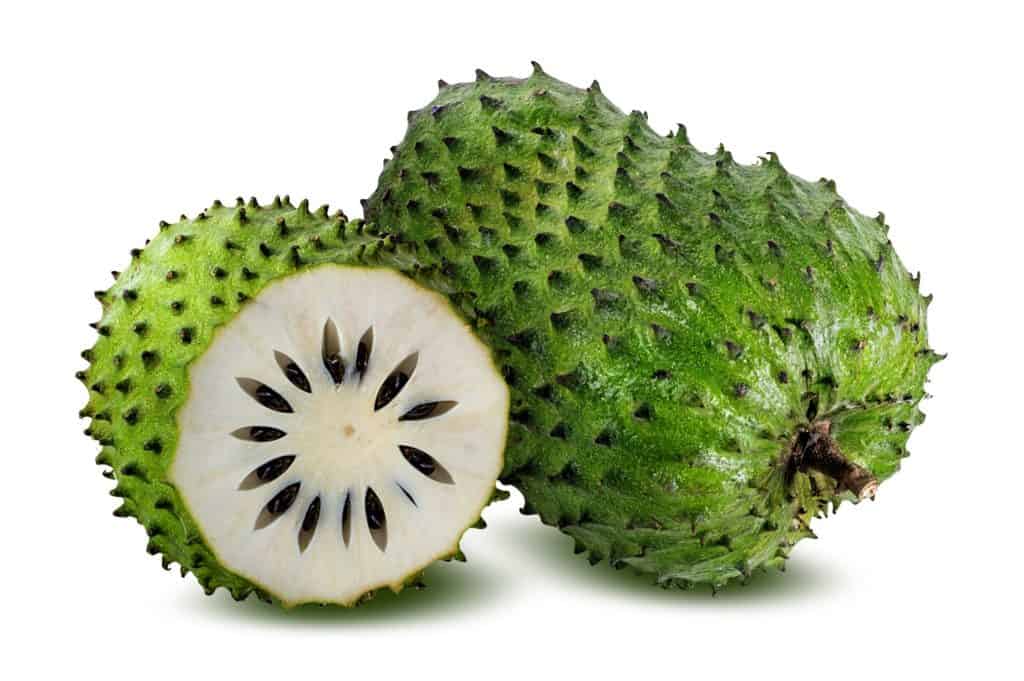
Mango
Mango is a low-calorie fruit with high levels of vitamin C, fiber, and pectin, making it a perfect fruit that helps control high cholesterol levels. Another benefit of eating mangoes is that they cleanse your skin from deep inside your body. It treats pores and gives a glow to your skin.
Mangoes are not only delicious and widely popular but also packed with nutrients that offer various health benefits. Here are some of the key health benefits of eating mangoes:
Rich in Vitamins and Minerals: Mangoes are an excellent source of vitamin C, which is important for immune function, skin health, and the repair of tissues. They also provide good amounts of vitamin A, which is vital for eye health and immune functions. Additionally, mangoes contain vitamin K, vitamin E, and several B vitamins, along with minerals such as potassium, magnesium, and copper.
High Antioxidant Content: Mangoes contain powerful antioxidants such as mangiferin, quercetin, beta-carotene, and astragalin. These compounds help protect the body against oxidative stress, which is linked to many chronic diseases, including heart disease and cancer.
Promotes Digestive Health: Mangoes contain enzymes like amylases, which help break down large food molecules so they can be easily absorbed. The fiber in mangoes also aids digestive health by promoting regular bowel movements and helping to prevent constipation.
Supports Heart Health: The potassium and magnesium in mangoes are beneficial for maintaining healthy heart function and regulating blood pressure levels. Furthermore, the fiber, potassium, and vitamins help lower the levels of LDL (bad) cholesterol in the blood, which can reduce the risk of heart disease.
Boosts Immune System: The generous amounts of vitamin C and vitamin A in mangoes strengthen the immune system and help keep it functioning properly. These vitamins are also essential for maintaining healthy mucous membranes and skin, which are key components of the body’s first line of defense against infection.
Improves Eye Health: Mangoes are rich in beta-carotene, which helps in the production of vitamin A. Adequate intake of vitamin A is linked to improved eye health, reducing the risk of night blindness and dry eyes.
Skin and Hair Health: Vitamins A and C are crucial for skin and hair health. Vitamin C is involved in creating collagen, which keeps skin firm and hair strong. Vitamin A is also vital for healthy skin, and its deficiency can lead to a dull complexion.
May Help with Weight Control: Mangoes can be a part of a healthy diet aimed at maintaining optimal weight. The fiber in mangoes helps promote feelings of fullness, which can reduce overall calorie intake by limiting the desire to snack excessively.
Mangoes are versatile and can be enjoyed in many forms—fresh, dried, or blended into smoothies. However, because they are high in natural sugars, they should be consumed in moderation, especially if you are monitoring your blood sugar levels.
Watermelon
Sandia is the word for watermelon in Panama. The cheery red color comes from lycopene, an antioxidant. Studies show that watermelon may help curb your risk of cancer and diabetes as part of a healthy lifestyle. Eating watermelon is a good way to get more water in your body because it is 92% water.
Watermelon is refreshing and delicious, especially on a hot day, but it also offers numerous health benefits due to its nutrient-rich profile. Here are some key health benefits of eating watermelon:
Hydration: Watermelon is about 92% water, making it excellent for hydration. Staying hydrated is crucial for maintaining healthy body functions, including temperature regulation, nutrient transport, and brain function.
Rich in Nutrients and Low in Calories: Watermelon is low in calories yet rich in important vitamins and minerals. It contains vitamin C, vitamin A (from beta-carotene), and some vitamins of the B group, particularly B1 and B6. It also provides potassium and magnesium.
Contains Compounds with Antioxidant Properties: Watermelon is loaded with antioxidants, including lycopene, vitamin C, and beta-carotene. These antioxidants help combat oxidative stress and may reduce the risk of chronic diseases such as heart disease and cancer.
Heart Health: The lycopene in watermelon has been linked to reduced risk of heart diseases. Lycopene may help lower cholesterol and blood pressure. Additionally, the potassium found in watermelon can help control blood pressure, reduce the risk of stroke, and potentially decrease the risk of kidney stones.
Anti-inflammatory Properties: Watermelon contains cucurbitacin E, a anti-inflammatory compound. Chronic inflammation is linked to many diseases, so consuming anti-inflammatory foods can be beneficial.
May Help Relieve Muscle Soreness: Watermelon juice has been shown to reduce muscle soreness, thanks largely to its content of citrulline, an amino acid that helps improve blood flow and can reduce soreness and recovery time in athletes.
Skin and Hair Benefits: Vitamins A and C found in watermelon are important for skin and hair health. Vitamin C helps your body make collagen, a protein that keeps your skin supple and your hair strong. Vitamin A is also important for healthy skin since it helps create and repair skin cells.
Digestive Health: Because it’s high in water and contains a small amount of fiber, watermelon contributes to a healthy digestive tract and helps promote regular bowel movements.
Watermelon can be enjoyed independently, in fruit salads, as a juice, or in smoothies. Incorporating watermelon into your diet is a tasty way to stay hydrated and receive a boost of important nutrients during the warmer months.
Needless to say, eating more of these fruits, which are readily available at affordable prices in Panama, will improve your health!
BEFORE AND AFTER:
Joe went on a Panama Relocation Tour in January 2023. Shortly after his tour, he moved to Panama City and changed his diet from sugary sodas to fresh fruit drinks and lots of fresh veggies and fish. He also gets a lot more exercise walking around Panama City. See the transformation.
2. Panama is teeming with fresh seafood
Because Panama is flanked by the Pacific and Atlantic Oceans, it has much to offer in terms of seafood. In fact, Panamanians have a long history of fishing and utilizing the ocean around them.
When you move to Panama, you’ll get healthy because you’ll adapt a diet which is rich in seafood. Seafood is a great source of lean protein, magnesium, vitamin D, and omega-3 fatty acids. These vitamins and minerals are essential in fighting against inflammation, heart diseases, hypertension, diabetes, osteoporosis, and cancer.
Seafood is affordable too! Sea bass, called corvina, is about $3 a pound. Fresh tuna is $4 a pound. Pargo, or red snapper, is about $2 a pound. With these prices, you’ll be eating healthy fish a lot more often.

3. Panama’s charm will make you want to explore
As you know, walking is a form of physical activity, and with Panama’s beauty, you’ll find yourself walking a lot more to explore this beautiful paradise. Because of its alluring nature, you will be motivated to move to enjoy what this country has to offer.
Walking helps lower blood pressure, increase cardiovascular health, promote stronger bones, improve balance, and reduce body fat.
You’ll also have opportunities to get involved in many social activities that will help boost your spirits.
Living in Panama is a good choice if you are looking for fresh produce, tropical delicacies, and sunshine. Panama offers a healthier lifestyle.
Many people who have relocated to Panama have reported that they have been able to get off or significantly reduce the medications they take.
Many have also reported losing weight after moving to Panama, which helps you be healthier too.
When you move to Panama, you’ll have less stress because of the affordable, relaxed lifestyle, fresh air, and spectacular scenery.
Come see how you can LIVE BETTER for LESS in Panama!
Join us for an all-inclusive 6-day, 7-night Panama Relocation Tour to find the perfect place to live that fits your budget. You’ll explore living in Panama City, the beaches, colonial towns, and mountain towns. The tour is like a rolling seminar that teaches you all the things you need to know to have a hassle-free move to Panama.
Or, if you prefer to explore Panama on your own, check out the Online Panama Relocation Guide



